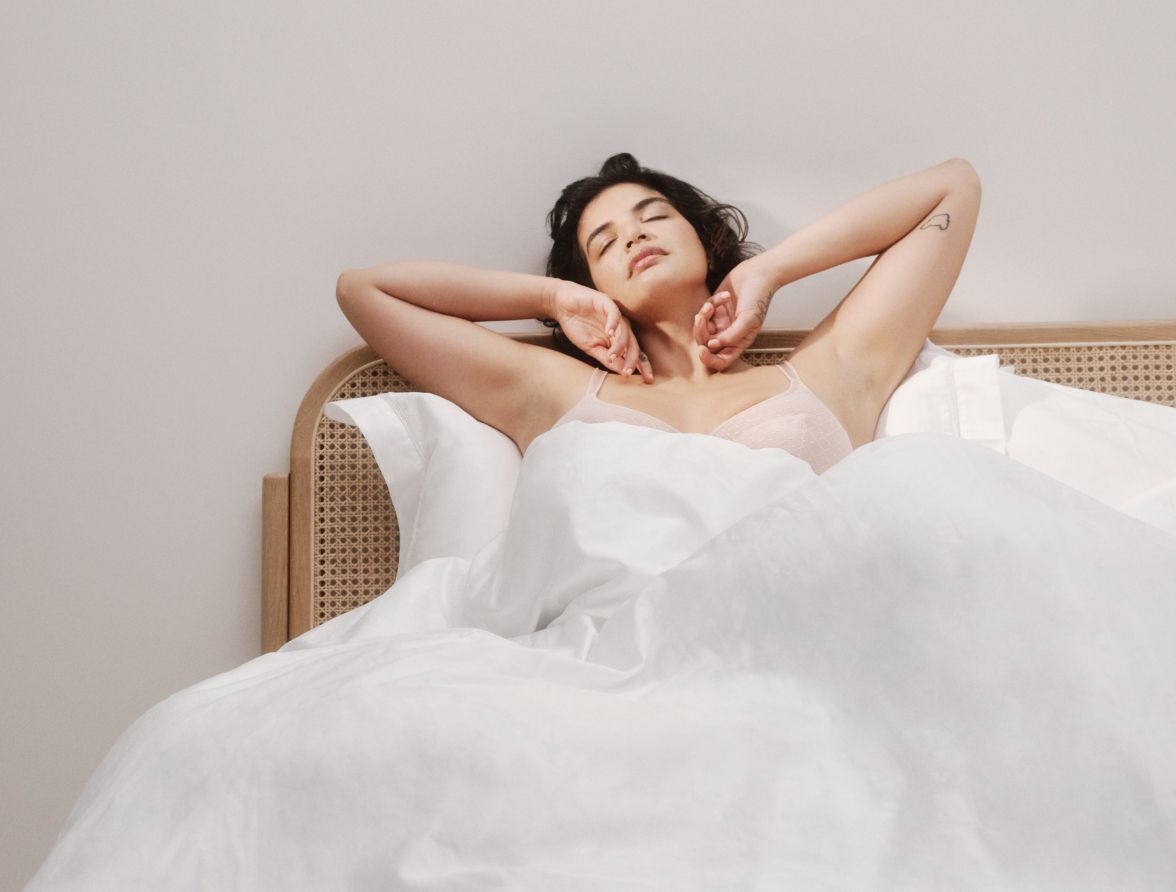Mastering the menopause: how to soften the symptoms and reclaim your sleep
When journalist Sam Baker’s sleep pattern began to suffer, she realised the menopause was to blame
I was always one of those annoying people who never had a problem with sleep. Work-induced stress, ‘am I good enough’ anxiety, ‘when the hell will I find the time to do that’ panic attacks, yes. But sleep? No.
Sleep was my refuge. When it all got too much, I’d turn in and the lights literally went out the second my head hit the pillow. Yet all that changed, quite suddenly, in my mid-forties and I had no idea why. Life was going on, of course. But nothing I hadn’t coped with before. What I didn’t realise then was the large role sleep had played in that – I’d been able to get through almost anything by clocking up a solid eight hours a night.
The first time it happened I assumed it was a one-off. It had been quite a day. A magazine cover star had pulled out at the last minute, staff problems, financial problems, train problems. I lay awake until the birds started their a cappella chorus, working moderate problems into epic catastrophes. Then I dropped off, about an hour before the alarm went off. The next night I fell asleep at around 2am, only to stir again at 4am. And that was it: I was awake – although I didn’t do anything sensible like get up and get on with the day, because I wasn’t a professional insomniac and I didn’t know the tricks.
Instead, I lay there developing a bad temper that would stay with me until I lay in the same spot at the same time the next night. And the next. And the next. It wasn’t until the night sweats kicked in and I entered the tyrannical cycle of duvet on/duvet off, window open/window shut, partner asleep/partner awake/partner really irritated, that I realised what was going on.
I’d like to tell you that this was just me being clueless, but ask around and you’ll discover that the majority of women entering perimenopause are blind to the symptoms. We know about the hot flushes and night sweats – which is why my lightbulb switched on when that stage hit – but there are dozens of other symptoms, some debilitating, some not so much, that society is oblivious to. However, when I drilled down through my own anxiety, brain fog and plummeting confidence, I realised there was one symptom underpinning them all: insomnia. And once I realised that, I was able to start dealing with it.
“Perimenopause has dozens of symptoms but as a society we are oblivious to most of them”
The next steps
For me, HRT eased the hot flushes and night sweats as well as the anxiety and brain fog, and the lightening of this cacophony in my head enabled me to get a grip on everything else. But if you’re reluctant to try hormones or view them as a last resort (I hear you), there are lots of natural alternatives.
One of the most highly regarded is MPowder Meno-Boost Bio-Stage No.2 menopause supplement. This daily powder shake is made from vegan ingredients and focuses on alleviating some of the most common symptoms of menopause – hot flushes, anxiety, brain fog and sleeplessness, among others.
Paying attention to the practicalities of sleep can reap dividends, too. I have a friend who invested in a sofa bed so that they could easily escape to the other room when the tossing and turning became too much. Personally, I wouldn’t go that far, but the Scandinavian practice of replacing your double duvet with two single ones, or investing in a duvet of different togs, worked wonders for us during a particularly sleepless winter.
What else can help to improve sleep?
‘Our body temperature needs to cool down at bedtime,’ says Camilla Rowe, Head of Textiles and Home Accessories at John Lewis. ‘Luckily there are plenty of things you can do to keep comfortable and improve sleep.
‘John Lewis has developed a range of temperature-regulating solutions with hot sleepers and the menopause in mind. The aim is to help control your body’s core temperature and keep you cool and dry at night.’
These are our experts’ top picks for regulating your temperature at night.
John Lewis offers free virtual sleep consultations to discuss your needs













